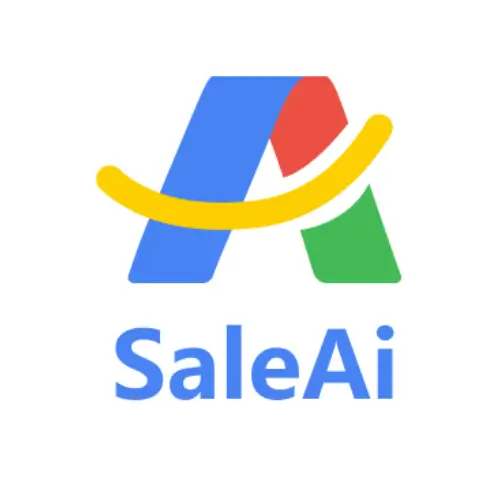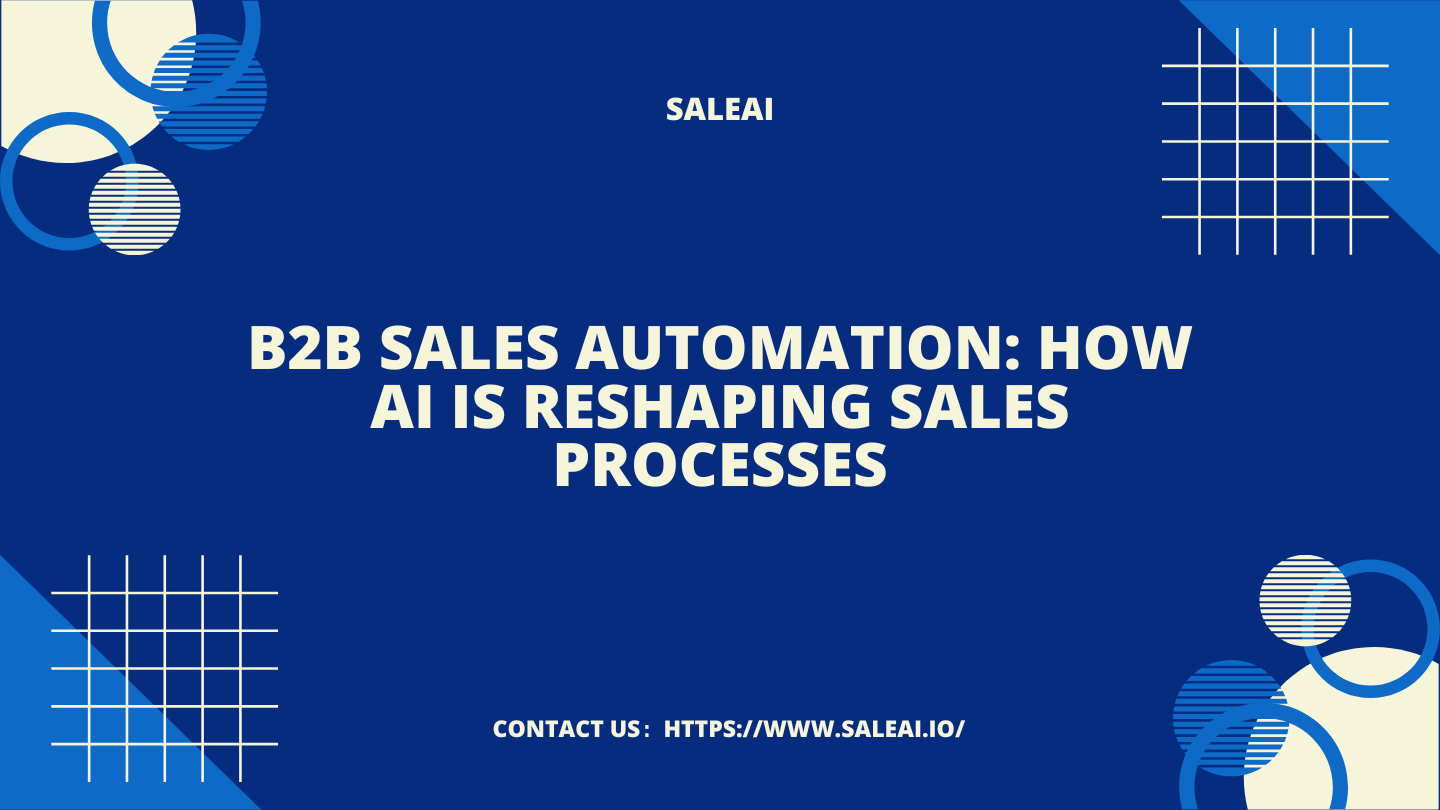B2B Sales Automation as a Business Imperative
The B2B sales landscape is evolving rapidly, driven by technological advancements and a demand for greater efficiency. The days of manual, resource-intensive sales processes are being replaced by AI-driven sales automation, enabling businesses to achieve higher productivity and better results.
At the center of this transformation is B2B sales automation technology—a suite of tools designed to streamline workflows, eliminate inefficiencies, and empower sales teams to focus on their core objectives: building relationships and closing deals. SaleAI’s B2B sales automation solutions exemplify this shift, delivering data-driven, scalable, and intuitive tools to modernize sales processes.
Breaking Down B2B Sales Automation
B2B sales automation focuses on eliminating repetitive, time-consuming tasks that traditionally bog down sales teams. By leveraging AI, businesses can automate key processes across lead generation, qualification, outreach, and follow-ups. Let’s explore the primary components of B2B sales automation:
a. Automated Lead Generation
AI-powered tools can identify and collect targeted leads by analyzing vast amounts of data from platforms like LinkedIn, websites, and global business directories. SaleAI’s automation ensures:
- Leads are filtered by industry, location, company size, and decision-maker role.
- Updated, accurate contact information is added to your CRM automatically.
b. Smart Lead Qualification
Not every lead is ready to convert. AI tools use data analytics to qualify leads by:
- Scoring them based on engagement behavior, company size, and industry trends.
- Highlighting the most promising prospects for your sales team to prioritize.
c. Streamlined Outreach Campaigns
B2B sales automation tools simplify outreach by managing email campaigns, follow-up schedules, and multi-channel communication. These tools can:
- Personalize emails at scale, improving engagement rates.
- Schedule automated follow-ups to ensure no opportunities are missed.
- Track prospect interactions to optimize outreach timing and messaging.
d. CRM Integration and Pipeline Management
Automation tools sync seamlessly with CRM systems, ensuring:
- Lead data is automatically updated and organized.
- Sales pipelines are streamlined, with real-time visibility into deal progress.
- Teams can focus on nurturing relationships instead of administrative tasks.
How SaleAI Powers B2B Sales Automation
SaleAI’s AI-driven platform is built to empower sales teams with intelligent, automation-focused tools. Here’s how it transforms B2B sales:
a. Data-Driven Insights
SaleAI integrates global business data and LinkedIn insights to provide detailed information on prospects. This includes:
- Contact details such as email addresses, phone numbers, and LinkedIn profiles.
- Company insights like size, revenue, location, and industry.
- Decision-maker identification for targeted engagement.
b. Multi-Channel Automation
SaleAI enables automated outreach across multiple channels, including:
- Email Campaigns: Personalize emails and automate follow-ups.
- LinkedIn Messaging: Send connection requests and follow-up messages directly on LinkedIn.
- WhatsApp Integration: Reach prospects through their preferred messaging platform.
c. AI-Enhanced Lead Scoring
SaleAI uses AI algorithms to analyze and score leads based on:
- Purchase intent and engagement behavior.
- Past interactions and CRM data.
- Market trends and industry relevance.
d. Real-Time Analytics
Track the performance of your sales campaigns with SaleAI’s analytics dashboard, which provides:
- Metrics on email open rates, response rates, and follow-ups.
- Insights into pipeline performance and conversion rates.
- Recommendations for optimizing sales strategies.
Key Benefits of B2B Sales Automation
a. Time Savings
Sales automation eliminates repetitive tasks, allowing sales teams to dedicate more time to high-impact activities like relationship-building and deal closing.
b. Improved Productivity
With AI handling lead generation, qualification, and outreach, sales teams can focus their efforts on qualified prospects, improving conversion rates.
c. Enhanced Accuracy
AI tools reduce manual errors in data entry, lead scoring, and outreach, ensuring a more accurate and efficient sales process.
d. Scalability
Whether you’re a small business or an enterprise, sales automation tools can scale to match your needs, managing thousands of leads without additional resources.
e. Competitive Advantage
By adopting cutting-edge automation tools, businesses can stay ahead of competitors still relying on outdated, manual sales processes.
Common Use Cases for B2B Sales Automation
a. Scaling Lead Generation for Growing Businesses
As businesses expand, their sales teams often struggle to keep up with rising lead volumes. B2B sales automation tools like SaleAI can manage this growth by:
- Automating lead data collection and qualification.
- Ensuring sales teams are only engaging with high-priority leads.
b. Personalizing Outreach for Account-Based Marketing (ABM)
For companies using ABM strategies, automation tools can:
- Customize outreach messages for specific accounts.
- Track engagement metrics to refine targeting.
- Enhance personalization without sacrificing efficiency.
c. Optimizing Sales in Complex Markets
In industries with long sales cycles or complex decision-making processes, automation tools help by:
- Maintaining consistent engagement with prospects through automated follow-ups.
- Providing real-time insights into buyer behavior and preferences.
d. Increasing Efficiency in Small Teams
Small sales teams often lack the resources to manage large volumes of leads. Automation tools empower these teams to:
- Compete with larger organizations by automating repetitive tasks.
- Focus their limited resources on high-value opportunities.
How to Implement B2B Sales Automation Effectively
To maximize the benefits of B2B sales automation, businesses should follow these best practices:
- Define Goals: Identify specific objectives for automation, such as increasing lead generation, improving conversion rates, or reducing time spent on administrative tasks.
- Choose the Right Tools: Select a sales automation platform like SaleAI that aligns with your goals and integrates with your existing CRM and sales stack.
- Train Your Team: Provide training to ensure your sales team understands how to use automation tools effectively.
- Monitor and Optimize: Regularly track performance metrics and adjust your strategies based on data insights.
The Future of B2B Sales Automation
The adoption of B2B sales automation is no longer optional—it’s essential for businesses that want to remain competitive in a fast-paced, data-driven world. Tools like SaleAI are leading the charge, offering AI-powered solutions that:
- Simplify sales workflows.
- Enhance lead targeting and personalization.
- Deliver actionable insights for better decision-making.
By integrating automation into your sales processes, you can unlock new levels of efficiency, productivity, and growth.





